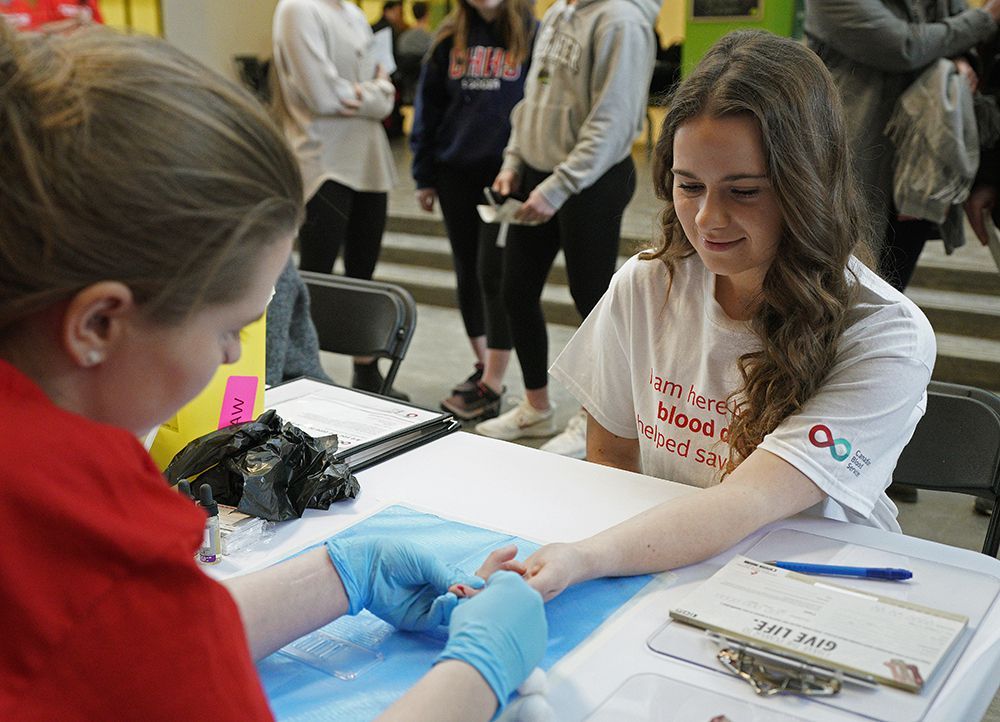the united kingdom recently became one of the first countries in the world to commit to implementing an individualized, risk-based screening of donors and eliminate a blanket ban on gay men donating blood. as a gay canadian, it’s been a dream of mine to donate blood; one that, despite the u.k.’s announcement, remains out of reach on this side of the pond.canada’s ban on men who have sex with men donating blood has been in place since 1977. while the last few years have seen lifelong bans on gay men donating blood replaced with “deferral” policies that require gay men to abstain from sex for anywhere between three and 12 months, this is the first time gay men in a g8 country have not all been painted with the same brush.in 2019, canada shifted to a three-month window during which gay men must abstain from oral and anal sex before donating. the netherlands, france and the united states adopted similar celibacy windows this year, in part because pandemic restrictions decreased donations and forced them to seek new donors. others, like brazil, have had the courts strike down bans on the basis of discrimination while a few, like spain and argentina, have no restrictions whatsoever.while some would call this progress, the bottom line is unchanged: national blood donation policies discriminate based on gender and sexuality. these policies are not based on risky behaviour; they are based on heteronormative stereotypes that gay men act in ways that increase the odds of having hiv and other blood-borne diseases.strangely, the same dogmatic rationale that bans gay men from donating allows straight people who engage in the same risky sexual behaviours to donate blood without so much as a caution. they also don’t take into account contemporary risk-reducing behaviours like using condoms and taking pre-exposure prophylaxis antiretroviral pills.as an emergency physician, i have seen donated blood save countless lives. trauma, cancer and transplant patients all require blood, sometimes hundreds of units in a single hospital stay. my own record, working in a trauma intensive care unit in residency, was 202 units, or about 100 litres, of blood products poured into a single patient.canada’s hospitals collectively transfuse nearly 1 million units of blood each year to patients, all of it donated by canadians. but despite our generous collective effort, shortages abound. according to canadian blood services, the agency responsible for canada’s blood supply, only four per cent of canadians roll up their sleeves to donate each year.after the tainted-blood scandals of the 1980s, responsibility for canada’s blood supply was transferred from the red cross society to canadian blood services. legitimate fears about hiv and hepatitis existed back then, as they do now. but it’s not the 1980s anymore; hiv is no longer the mysterious “gay man’s disease” it once was and screening techniques have advanced significantly. yet the basic premise of the ban on gay men donating blood remains the same – that in being gay, we are, collectively, too risky a group to tap into.of the u.k.’s plans to scrap the three-month window for gay men, health secretary matt hancock said “this landmark change to blood donation is safe and it will allow many more people, who have previously been excluded by donor selection criteria, to take the opportunity to help save lives.”but the change does more than increase the depth of the blood donor pool. it actually makes the blood collected even safer. by applying individualized risk criteria to all people, not just gay men, the new rules will exclude heterosexual people who engage in behaviours shown to be high risk for contracting blood-borne viruses like hiv and hepatitis, such as anal sex outside of a monogamous relationship.ethan spibey, the british activist who has led a six-year campaign to have the rules changed, said “simply being a man who has sex with men is not a good enough reason to exclude someone from donating blood.” it seems the u.k. government finally agrees; by the summer of next year, when the policy is to be implemented, gay men won’t have to give up their sex life to give up their blood. those in monogamous relationships won’t have to be abstinent at all.i’m ready to roll up my sleeve. it’s time for health canada and canadian blood services to expedite the glacial pace of reviewing inadequate, archaic rules that discriminate against people like me based on gender and sexual orientation. risk ought to be assessed based on behaviour, not stereotypes.
healthy debate deputy editor blair bigham is on hiatus as an emergency doctor while he pursues an anesthesia critical care fellowship at stanford university.this story was originally published on healthy debate. find the original story
here.
 3 minute read
3 minute read









